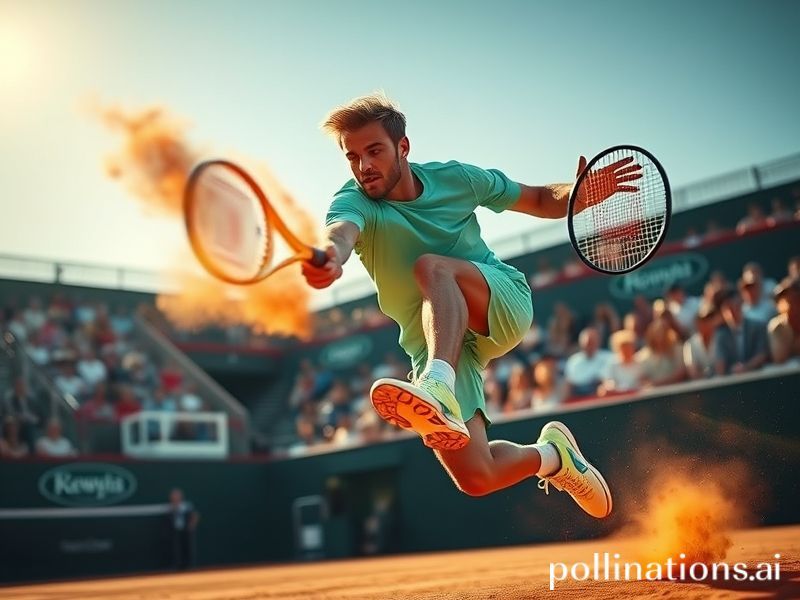David Goffin: Belgium’s Quiet Insurgent in a World That Forgot Him
David Goffin, the Belgian who once looked like he’d wandered off a Flemish Renaissance canvas and onto a tennis court, is still alive—both literally and professionally. This may come as a shock to the casual global sports fan, who long ago filed him under “perpetual quarter-finalist, possibly fictional.” Yet here he is, grinding through the tour like a conscientious civil servant who refuses to take early retirement, even when the pension fund has been looted by louder colleagues.
Goffin’s career is a geopolitical parable in miniature. He rose in an era when tennis was supposed to be dominated by the Big Four—an oligopoly so stable it could have been drawn up by the IMF. Instead of folding, he did what any small nation does when the superpowers start carving up the map: he kept showing up, politely, with excellent backhand technique. The result was a top-ten ranking in 2017, proof that even in an age of 1,000-year storms and 250-mph serves, a 5-foot-11 guy from Rocourt can still crash the G20 summit.
Internationally, Goffin’s significance lies precisely in his refusal to be significant. While other athletes announce themselves with neon nicknames or paternity-leave melodramas, Goffin has offered a masterclass in bureaucratic persistence. His game is a spreadsheet: percentages, margins, tiny cells of advantage that add up to something only actuaries and tennis nerds truly appreciate. In a world addicted to virality, he is the anti-meme—a living reminder that competence without charisma still counts, even if the highlight reels remain tragically free of flaming racquets.
Observers in Brussels like to frame him as a soft-power export, the sporting equivalent of those chocolate-covered speculoos diplomats hand out at trade receptions. But this undersells the darker truth: Goffin is what happens when a country with no natural resources except rain and linguistic anxiety decides to weaponize diligence. Belgium has produced Magritte and mussels, but it has never produced a Wimbledon champion. Goffin is the compromise candidate—close enough to keep the national ego on life support, distant enough to inspire the traditional Belgian pastime of cheerful fatalism.
Globally, his trajectory mirrors the late-capitalist work ethic: do everything right, peak at a moment when the market is cornered by monopolists, then watch your stock dip faster than European energy prices. Injuries arrived like unscheduled IMF audits: a freak eye injury at the French Open, a twisted ankle in Monte Carlo, each setback delivered with the impeccable timing of a German train. Sponsors, those fair-weather vultures, migrated to shinier carcasses, leaving Goffin to hawk artisanal watches on Instagram—timepieces that, ironically, only he has the patience to appreciate.
Yet he endures, and therein lies the cosmic joke. While the planet debates whether democracy can survive Twitter and whether Twitter can survive its own boardroom, Goffin keeps hitting the gym at 6 a.m., practicing inside-out forehands as if the Enlightenment might still be salvageable. His continued presence is a rebuke to our collective addiction to narratives of decline. Each tournament he enters is a referendum on incrementalism: can small, iterative improvements still matter in a culture drunk on disruption? The scoreboard, like most scoreboards, refuses to editorialize.
So when you next spot his name buried in the draw, somewhere between the NextGen prodigy and the wildcard who owns a crypto island, spare a thought for the Belgian everyman. He is not here to save tennis; he is here to remind us that salvation is wildly overrated. In a world busy auctioning off the future, David Goffin still believes in showing up on time, in shoes he paid for himself, ready to lose in the fourth round with dignity. It isn’t heroic, but neither is it nothing—and these days, that passes for international optimism.







